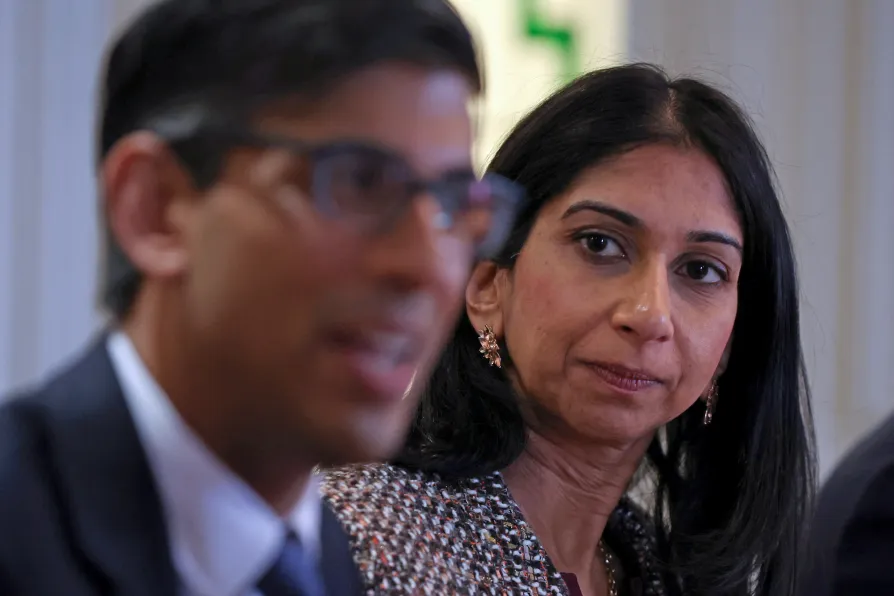Britain's ‘nastiest and most divisive home secretary’ sacked
Campaigners welcome Braverman's sacking but warn protest rights still at risk

 Prime Minister Rishi Sunak and (then) Home Secretary Suella Braverman during a visit to a hotel in Rochdale, Greater Manchester, April 03, 2023
Prime Minister Rishi Sunak and (then) Home Secretary Suella Braverman during a visit to a hotel in Rochdale, Greater Manchester, April 03, 2023
CAMPAIGNERS welcomed Suella Braverman’s sacking from her home secretary role today — but braced for continued assaults on the right to protest.
Prime Minister Rishi Sunak gave Ms Braverman the boot after she defied No10 by publishing an unapproved article which is widely blamed for inciting a far-right riot near the Cenotaph on Saturday.
The article for the Times accused police of “playing favourites” with pro-Palestinian protesters while targeting the far-right. Following the article she faced accusations of stoking tensions ahead of Saturday’s protest calling for a ceasefire in Gaza.
Similar stories

Court of Appeal rules key anti-protest legislation was forced through unlawfully

Activists vow to oppose Trumpism by fighting for ‘social and environmental justice, working-class organisation and universal human and civil rights’












